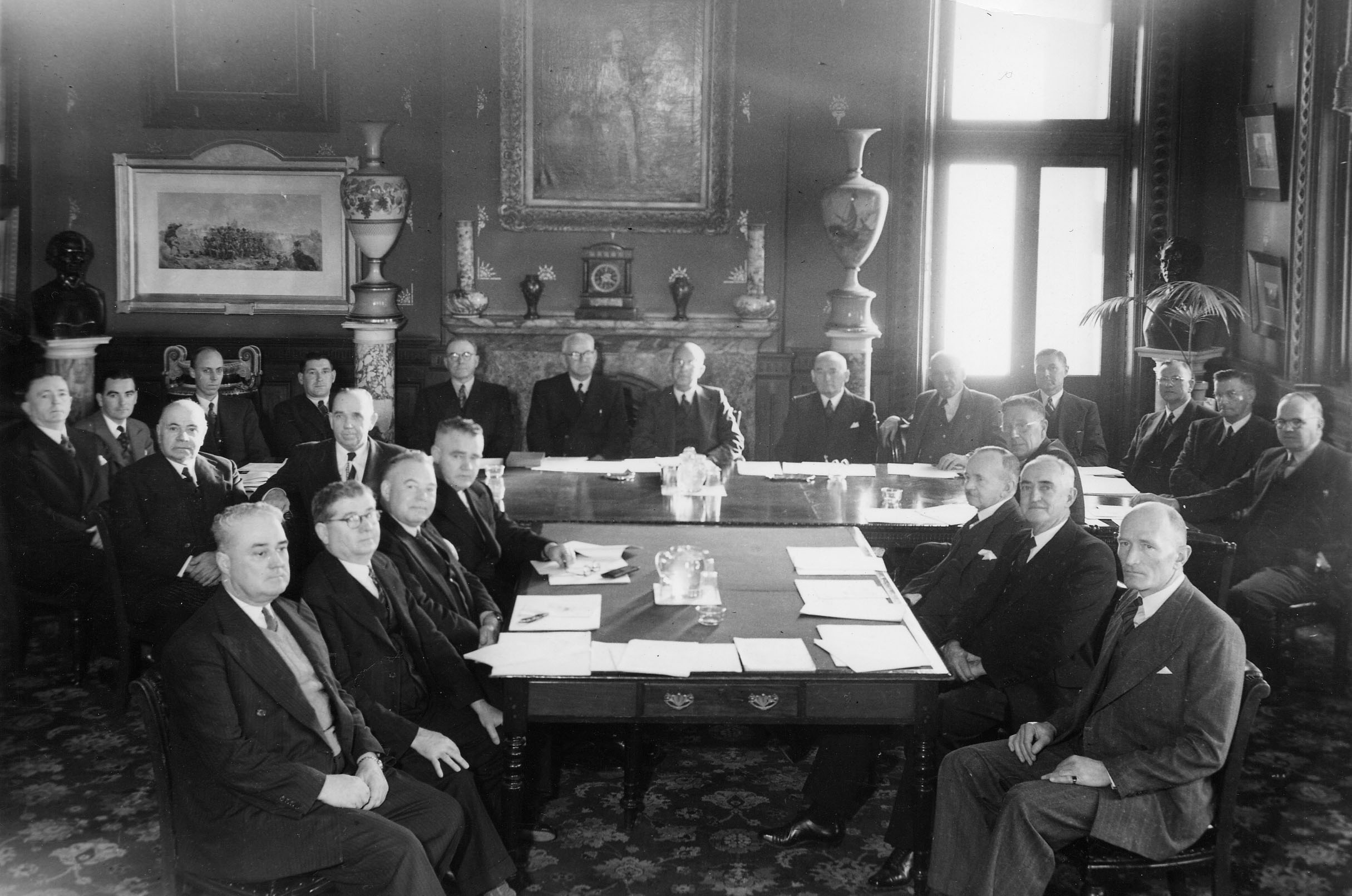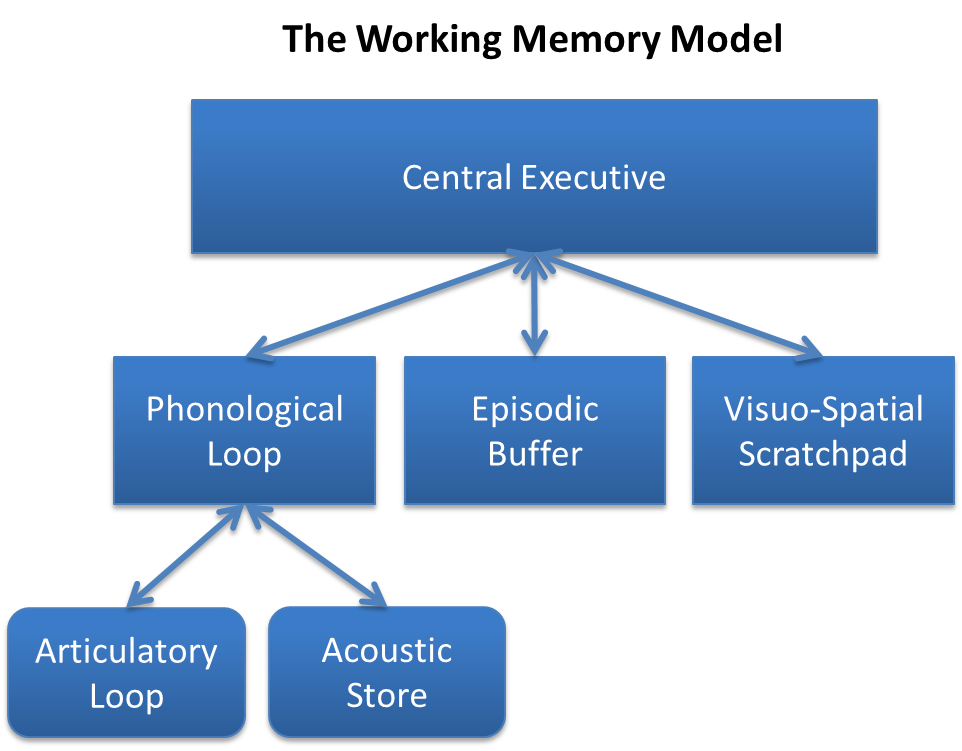|
John Sweller
John Sweller (born 1946) is an Australian educational psychologist who is best known for formulating an influential theory of cognitive load. He is currently (i.e., 2020) Professor Emeritus at the University of New South Wales. Education Sweller was educated at the University of Adelaide where he received a Bachelor of Arts degree in 1969 followed by a PhD from the department of psychology in 1972. His doctoral research investigated effects of discrimination training on subsequent shift learning in animals. Career and research Sweller has authored over 80 academic publications, mainly reporting research on cognitive factors in instructional design, with specific emphasis on the instructional implications of working memory limitations and their consequences for instructional procedures.John Sweller (1999) ''Instructional design in technical areas''. Melbourne: ACER Press. Awards and honours Sweller was elected a Fellow of the Academy of the Social Sciences in Australia The Ac ... [...More Info...] [...Related Items...] OR: [Wikipedia] [Google] [Baidu] |
Educational Psychology
Educational psychology is the branch of psychology concerned with the scientific study of human learning. The study of learning processes, from both cognitive and behavioral perspectives, allows researchers to understand individual differences in intelligence, cognitive development, affect, motivation, self-regulation, and self-concept, as well as their role in learning. The field of educational psychology relies heavily on quantitative methods, including testing and measurement, to enhance educational activities related to instructional design, classroom management, and assessment, which serve to facilitate learning processes in various educational settings across the lifespan.Snowman, Jack (1997). Educational Psychology: What Do We Teach, What Should We Teach?. "Educational Psychology", 9, 151-169 Educational psychology can in part be understood through its relationship with other disciplines. It is informed primarily by psychology, bearing a relationship to that discipline a ... [...More Info...] [...Related Items...] OR: [Wikipedia] [Google] [Baidu] |
Cognitive Load
In cognitive psychology, cognitive load refers to the amount of working memory resources used. There are three types of cognitive load: ''intrinsic'' cognitive load is the effort associated with a specific topic; ''extraneous'' cognitive load refers to the way information or tasks are presented to a learner; and ''germane'' cognitive load refers to the work put into creating a permanent store of knowledge (a schema). Cognitive load theory was developed in the late 1980s out of a study of problem solving by John Sweller. Sweller argued that instructional design can be used to reduce cognitive load in learners. Much later, other researchers developed a way to measure perceived mental effort which is indicative of cognitive load. Task-invoked pupillary response is a reliable and sensitive measurement of cognitive load that is directly related to working memory. Information may only be stored in long term memory after first being attended to, and processed by, working memory. Workin ... [...More Info...] [...Related Items...] OR: [Wikipedia] [Google] [Baidu] |
University Of New South Wales
The University of New South Wales (UNSW), also known as UNSW Sydney, is a public research university based in Sydney, New South Wales, Australia. It is one of the founding members of Group of Eight, a coalition of Australian research-intensive universities. Established in 1949, UNSW is a research university, ranked 44th in the world in the 2021 ''QS World University Rankings'' and 67th in the world in the 2021 ''Times Higher Education World University Rankings''. It is one of the members of Universitas 21, a global network of research universities. It has international exchange and research partnerships with over 200 universities around the world. According to the 2021 QS World University Rankings by Subject, UNSW is ranked top 20 in the world for Law, Accounting and Finance, and 1st in Australia for Mathematics, Engineering and Technology. UNSW is also one of the leading Australian universities in Medicine, where the median ATAR (Australian university entrance examination re ... [...More Info...] [...Related Items...] OR: [Wikipedia] [Google] [Baidu] |
University Of Adelaide
The University of Adelaide (informally Adelaide University) is a public research university located in Adelaide, South Australia. Established in 1874, it is the third-oldest university in Australia. The university's main campus is located on North Terrace in the Adelaide city centre, adjacent to the Art Gallery of South Australia, the South Australian Museum, and the State Library of South Australia. The university has four campuses, three in South Australia: North Terrace campus in the city, Roseworthy campus at Roseworthy and Waite campus at Urrbrae, and one in Melbourne, Victoria. The university also operates out of other areas such as Thebarton, the National Wine Centre in the Adelaide Park Lands, and in Singapore through the Ngee Ann-Adelaide Education Centre. The University of Adelaide is composed of three faculties, with each containing constituent schools. These include the Faculty of Sciences, Engineering and Technology (SET), the Faculty of Health and Medical S ... [...More Info...] [...Related Items...] OR: [Wikipedia] [Google] [Baidu] |
Australians
Australians, colloquially known as Aussies, are the citizens, nationals and individuals associated with the country of Australia. This connection may be residential, legal, historical or ethno-cultural. For most Australians, several (or all) of these connections exist and are collectively the source of their being Australian. Australian law does not provide for a racial or ethnic component of nationality, instead relying on citizenship as a legal status. Since the postwar period, Australia has pursued an official policy of multiculturalism and has the world's eighth-largest immigrant population, with immigrants accounting for 30 percent of the population in 2019. Between European colonisation in 1788 and the Second World War, the vast majority of settlers and immigrants came from the British Isles (principally England, Ireland and Scotland), although there was significant immigration from China and Germany during the 19th century. Many early settlements were initially pen ... [...More Info...] [...Related Items...] OR: [Wikipedia] [Google] [Baidu] |
Educational Psychology
Educational psychology is the branch of psychology concerned with the scientific study of human learning. The study of learning processes, from both cognitive and behavioral perspectives, allows researchers to understand individual differences in intelligence, cognitive development, affect, motivation, self-regulation, and self-concept, as well as their role in learning. The field of educational psychology relies heavily on quantitative methods, including testing and measurement, to enhance educational activities related to instructional design, classroom management, and assessment, which serve to facilitate learning processes in various educational settings across the lifespan.Snowman, Jack (1997). Educational Psychology: What Do We Teach, What Should We Teach?. "Educational Psychology", 9, 151-169 Educational psychology can in part be understood through its relationship with other disciplines. It is informed primarily by psychology, bearing a relationship to that discipline a ... [...More Info...] [...Related Items...] OR: [Wikipedia] [Google] [Baidu] |
Cognitive Load
In cognitive psychology, cognitive load refers to the amount of working memory resources used. There are three types of cognitive load: ''intrinsic'' cognitive load is the effort associated with a specific topic; ''extraneous'' cognitive load refers to the way information or tasks are presented to a learner; and ''germane'' cognitive load refers to the work put into creating a permanent store of knowledge (a schema). Cognitive load theory was developed in the late 1980s out of a study of problem solving by John Sweller. Sweller argued that instructional design can be used to reduce cognitive load in learners. Much later, other researchers developed a way to measure perceived mental effort which is indicative of cognitive load. Task-invoked pupillary response is a reliable and sensitive measurement of cognitive load that is directly related to working memory. Information may only be stored in long term memory after first being attended to, and processed by, working memory. Workin ... [...More Info...] [...Related Items...] OR: [Wikipedia] [Google] [Baidu] |
Bachelor Of Arts
Bachelor of arts (BA or AB; from the Latin ', ', or ') is a bachelor's degree awarded for an undergraduate program in the arts, or, in some cases, other disciplines. A Bachelor of Arts degree course is generally completed in three or four years, depending on the country and institution. * Degree attainment typically takes four years in Afghanistan, Armenia, Azerbaijan, Bangladesh, Brazil, Brunei, China, Egypt, Ghana, Greece, Georgia, Hong Kong, Indonesia, Iran, Iraq, Ireland, Japan, Kazakhstan, Kenya, Kuwait, Latvia, Lebanon, Lithuania, Mexico, Malaysia, Mongolia, Myanmar, Nepal, Netherlands, Nigeria, Pakistan, the Philippines, Qatar, Russia, Saudi Arabia, Scotland, Serbia, South Korea, Spain, Sri Lanka, Taiwan, Thailand, Turkey, Ukraine, the United States and Zambia. * Degree attainment typically takes three years in Albania, Australia, Bosnia and Herzegovina, the Caribbean, Iceland, India, Israel, Italy, New Zealand, Norway, South Africa, Switzerland, the Canadian province of ... [...More Info...] [...Related Items...] OR: [Wikipedia] [Google] [Baidu] |
Cognitive
Cognition refers to "the mental action or process of acquiring knowledge and understanding through thought, experience, and the senses". It encompasses all aspects of intellectual functions and processes such as: perception, attention, thought, intelligence, the formation of knowledge, memory and working memory, judgment and evaluation, reasoning and computation, problem solving and decision making, comprehension and production of language. Imagination is also a cognitive process, it is considered as such because it involves thinking about possibilities. Cognitive processes use existing knowledge and discover new knowledge. Cognitive processes are analyzed from different perspectives within different contexts, notably in the fields of linguistics, musicology, anesthesia, neuroscience, psychiatry, psychology, education, philosophy, anthropology, biology, systemics, logic, and computer science. These and other approaches to the analysis of cognition (such as embodied cognition) ... [...More Info...] [...Related Items...] OR: [Wikipedia] [Google] [Baidu] |
Working Memory
Working memory is a cognitive system with a limited capacity that can hold information temporarily. It is important for reasoning and the guidance of decision-making and behavior. Working memory is often used synonymously with short-term memory, but some theorists consider the two forms of memory distinct, assuming that working memory allows for the manipulation of stored information, whereas short-term memory only refers to the short-term storage of information. Working memory is a theoretical concept central to cognitive psychology, neuropsychology, and neuroscience. History The term "working memory" was coined by Miller, Galanter, and Pribram, and was used in the 1960s in the context of theories that likened the mind to a computer. In 1968, Atkinson and Shiffrin used the term to describe their "short-term store". What we now call working memory was formerly referred to variously as a "short-term store" or short-term memory, primary memory, immediate memory, operant memo ... [...More Info...] [...Related Items...] OR: [Wikipedia] [Google] [Baidu] |
Fellow
A fellow is a concept whose exact meaning depends on context. In learned or professional societies, it refers to a privileged member who is specially elected in recognition of their work and achievements. Within the context of higher educational institutions, a fellow can be a member of a highly ranked group of teachers at a particular college or university or a member of the governing body in some universities (such as the Fellows of Harvard College); it can also be a specially selected postgraduate student who has been appointed to a post (called a fellowship) granting a stipend, research facilities and other privileges for a fixed period (usually one year or more) in order to undertake some advanced study or research, often in return for teaching services. In the context of research and development-intensive large companies or corporations, the title "fellow" is sometimes given to a small number of senior scientists and engineers. In the context of medical education in No ... [...More Info...] [...Related Items...] OR: [Wikipedia] [Google] [Baidu] |




